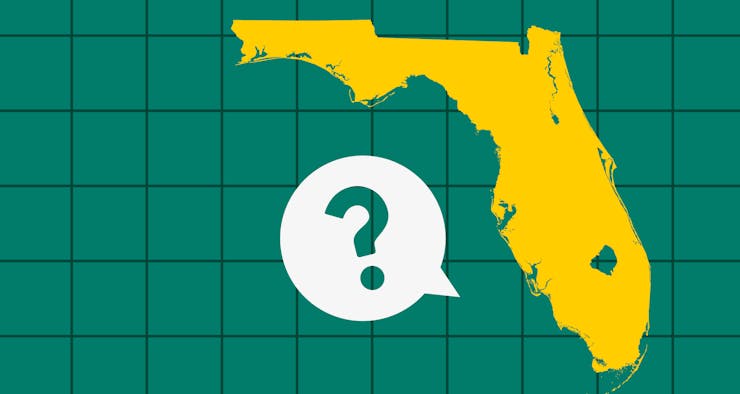After a drawn-out legal battle, Florida’s Supreme Court ruled on April 1st that a cannabis legalization measure known as Amendment 3 can appear on the state’s ballot this November.
The decision comes four months after the court heard arguments regarding the constitutional amendment (and two years after the court rejected a similar adult-use measure). The legalization campaign is run by Smart & Safe Florida, which gathered over one million signatures to put it on the ballot. Florida’s Republican Attorney General, Ashley Moody, led the unsuccessful fight against it.
Florida could soon see a booming rec market. Over 22 million people call the state home, and it already boasts a gigantic medical marijuana industry. Last year, nearly 138 million tourists visited the state. Over 600 dispensaries in Florida serve nearly 900,000 patients.
Although it remains to be seen whether 60% of the Sunshine State is to legalize weed (or whether the measure’s presence on the ballot will impact other races), there’s a lot we do know about Amendment 3. Read on to learn more about what the measure does and doesn’t cover, as well as the details on Florida’s medical program and current rates of marijuana arrests.
What’s in the Florida marijuana legalization amendment?
Amendment 3 only offers a handful of explicit directives. The measure sets possession limits at three ounces of flower, and up to five ounces of concentrates. The measure does not include language on homegrow, taxation or expungements of past offenses. Amendment 3 would enable existing dispensaries to sell to adults, and open the door for additional adult-use licenses down the road; the dispensary chain Trulieve, the largest in Florida, gave $39 million to the campaign.
Legalization would take effect six months after voters approve Amendment 3.
The measure does not include language around public consumption, but its sponsors have made clear that they would support subsequent legislation banning public consumption.
How do I vote for legal weed in Florida?
Florida residents over the age of 18 must register to vote more than 29 days before Election Day, or will not be able to cast a ballot.
Amendment 3 will need to garner 60% of the vote in order to enter into the state constitution.
What’s the latest on medical marijuana in Florida?
Florida has the largest medical marijuana program in the country: it serves nearly 900,000 patients in more than 600 shops. The measure originally passed with 71% of the vote in 2016. In 2019, Governor Ron DeSantis (R) signed a bill to allow patients to access smokable marijuana.
Shop highly rated dispensaries near you
Showing you dispensaries nearHow big could the rec market get?
In the words of Florida’s most famous resident, huuuuuge. According to an estimate conducted by Florida officials last year, legal marijuana could net the state at least up to $431 million in annual tax revenue.
Would Amendment 3 keep lots of people out of jail?
Amendment 3 does not include any language around expunging past sentences, but would eliminate most marijuana-related arrests. According to NORML, in 2022, Florida arrested roughly 2,300 people for marijuana possession, and 200 more for selling marijuana.

Could the amendment’s presence on the ballot impact other races?
Some lawmakers and pundits have argued that the presence of the marijuana initiative—as well as an unrelated measure that enshrines access to abortion in the state constitution—could improve Democrats’ chances in other races.
“It’ll bring out younger voters of all kinds and more white, female voters, both groups which lean heavy Democratic,” Brad Coker, CEO and managing director of Mason-Dixon Polling & Strategy, told USA Today.
Florida Democratic Party Chairwoman Nikki Fried struck a similar chord. “Having the ballot measures fundamentally shifts the demographics of who is targeted for turnout and who turns out,” she said. “We’re going to run on these issues that voters care about.”
Yet not everyone shares that optimism about the measure’s impact on the Presidential race.
“If they start pumping massive money in here because head-to-head it looks close, I could see the constitutional amendments mattering,” conservative consultant Brett Doster, president of Front Line Strategies, told Bloomberg. “But [Democrats] are in really, really deep water right now.”





